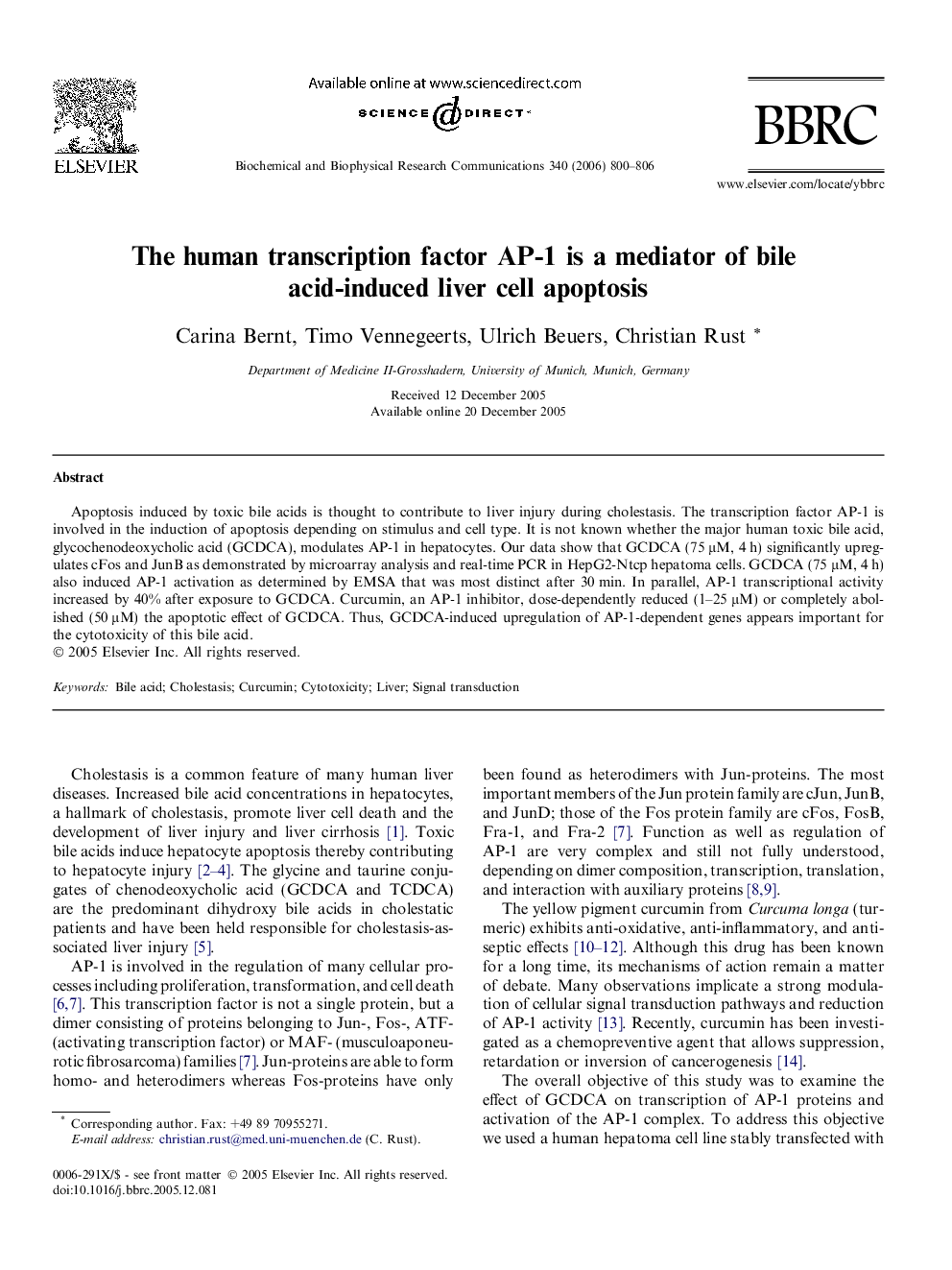| Article ID | Journal | Published Year | Pages | File Type |
|---|---|---|---|---|
| 1940533 | Biochemical and Biophysical Research Communications | 2006 | 7 Pages |
Apoptosis induced by toxic bile acids is thought to contribute to liver injury during cholestasis. The transcription factor AP-1 is involved in the induction of apoptosis depending on stimulus and cell type. It is not known whether the major human toxic bile acid, glycochenodeoxycholic acid (GCDCA), modulates AP-1 in hepatocytes. Our data show that GCDCA (75 μM, 4 h) significantly upregulates cFos and JunB as demonstrated by microarray analysis and real-time PCR in HepG2-Ntcp hepatoma cells. GCDCA (75 μM, 4 h) also induced AP-1 activation as determined by EMSA that was most distinct after 30 min. In parallel, AP-1 transcriptional activity increased by 40% after exposure to GCDCA. Curcumin, an AP-1 inhibitor, dose-dependently reduced (1–25 μM) or completely abolished (50 μM) the apoptotic effect of GCDCA. Thus, GCDCA-induced upregulation of AP-1-dependent genes appears important for the cytotoxicity of this bile acid.
